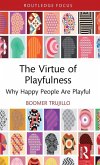Released in 2014, this was the first philosophy textbook in moral psychology, introducing students to a range of philosophical topics and debates such as: what is moral motivation? Do reasons for action always depend on desires? Is emotion or reason at the heart of moral judgment? Under what conditions are people morally responsible? Are there self-interested reasons for people to be moral?
The Second Edition of Moral Psychology: A Contemporary Introduction, updates its responses to these questions, taking advantage of the explosion of recent research from philosophers and psychologists on these topics, and adding a chapter on the question of whether morality is innate or learned. As before, the book emphasizes the relationship between traditional and interdisciplinary approaches to moral psychology and aims to carefully explain how empirical research is (or is not) relevant to philosophical inquiry. The bulleted summaries, study questions, and lists for further readings at the end of each chapter have been updated.
Key Updates to the Second Edition:
Includes a new opening section on human nature, borrowing material from elsewhere in the bookAdds a new chapter on evolutionary and developmental arguments for the innateness of moralityExpands coverage of the challenges to psychological research, including the replication crisis and the WEIRDness challengeProvides a new section on implicit bias and moral responsibilityOffers enhanced clarity and accessibility throughoutIncludes up-to-date further reading sections and bibliography
The Second Edition of Moral Psychology: A Contemporary Introduction, updates its responses to these questions, taking advantage of the explosion of recent research from philosophers and psychologists on these topics, and adding a chapter on the question of whether morality is innate or learned. As before, the book emphasizes the relationship between traditional and interdisciplinary approaches to moral psychology and aims to carefully explain how empirical research is (or is not) relevant to philosophical inquiry. The bulleted summaries, study questions, and lists for further readings at the end of each chapter have been updated.
Key Updates to the Second Edition:
Includes a new opening section on human nature, borrowing material from elsewhere in the bookAdds a new chapter on evolutionary and developmental arguments for the innateness of moralityExpands coverage of the challenges to psychological research, including the replication crisis and the WEIRDness challengeProvides a new section on implicit bias and moral responsibilityOffers enhanced clarity and accessibility throughoutIncludes up-to-date further reading sections and bibliography
"Valerie Tiberius' Moral Psychology, 2nd edition, proved to be the ideal stand-alone text for my upper-division course on the Philosophy and Psychology of Morality. The breadth of topics covered is impressive, the writing is reader-friendly, and philosophical and scientific perspectives on morality are each given their due - and, when possible, skillfully integrated. My students enjoyed discussing the book and learned much from it, as did I. A+!"
Timothy Shanahan, Loyola Marymount University
"This might be the only textbook I've read that I can honestly describe as a page-turner. Engaging and funny, this fantastic book manages to cover the vast field of moral psychology, from ancient philosophical theories to the latest empirical findings. Tiberius is able to illustrate and explain complex philosophical puzzles in a way that is not only clear - it's also clearly applicable to readers' own lives."
Jesse Graham, The University of Utah
Timothy Shanahan, Loyola Marymount University
"This might be the only textbook I've read that I can honestly describe as a page-turner. Engaging and funny, this fantastic book manages to cover the vast field of moral psychology, from ancient philosophical theories to the latest empirical findings. Tiberius is able to illustrate and explain complex philosophical puzzles in a way that is not only clear - it's also clearly applicable to readers' own lives."
Jesse Graham, The University of Utah








